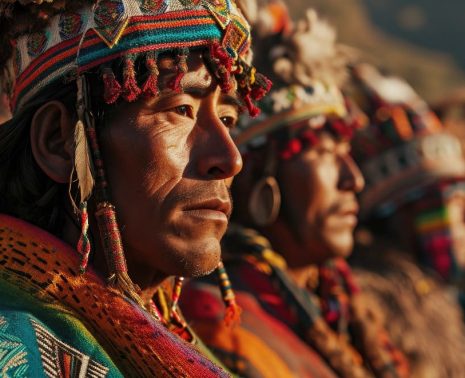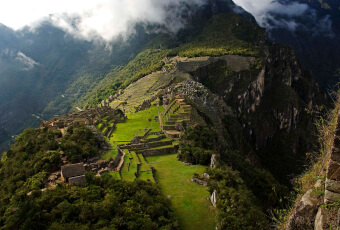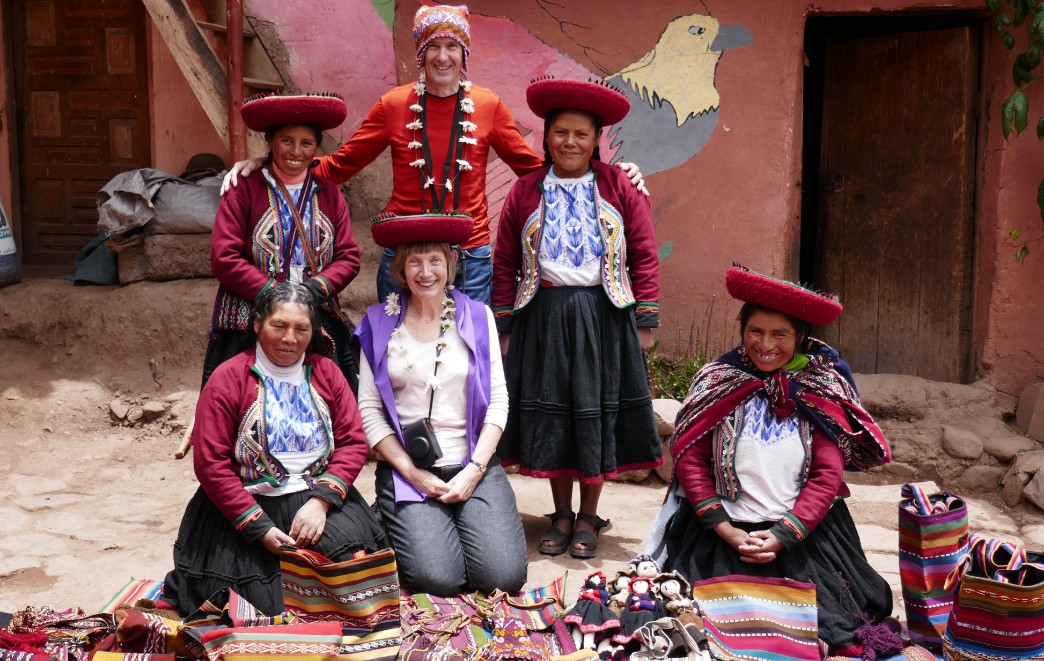
In a 2018 Harris Poll, 87% of business travelers said that traveling made them more empathetic.
The idea that traveling can expand your mind and heart is nothing new. But if that’s the kind of travel you’re looking for, there’s a big difference between going to a beach for two weeks and cultural travel.
While the former is no more than a vacation, the latter is about deeply engaging with the landscapes, culture, food, music, language and history of a place and its people. Cultural tourism leaves visitors with a lasting, often life-changing understanding of the world and the ways in which they engage with it.
As part of our commitments to both ethical and sustainable tourism, Kuoda provides plenty of opportunities for cultural immersion travel. Before we take off, though, here’s a little more about what you can expect from cultural travel experiences and how to make the most of them.
What is Cultural Travel?
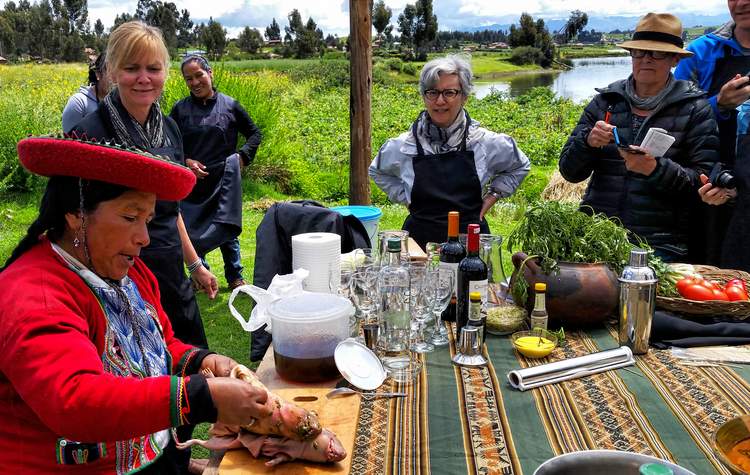
Cultural travel, also known as immersive travel, refers to a form of tourism that goes well beyond snapping photos of the most popular tourist sites. This type of tourism provides visitors with the opportunity to truly experience the cultural heritage of a place and its people.
Passed down from generation to generation, cultural heritage refers to the unique traditions of a society. It involves art, gastronomy, spirituality, landmarks, values, medicine, and more. When you choose cultural travel experiences, the intention is to learn about these traditions in an immersive, authentic, and sustainable way.
Cultural travel might mean sleeping in home-stays and guesthouses and eating local foods. You can have cultural travel experiences that are completely independent, taking public transportation from town to town, communicating across language barriers, and staying in rustic, rural homes.
But cultural travel can also be semi-independent. That is, you can book conscious cultural experiences with ethical companies like Kuoda amidst other, more conventional activities that peek your interest.
Benefits of Cultural Immersion Travel
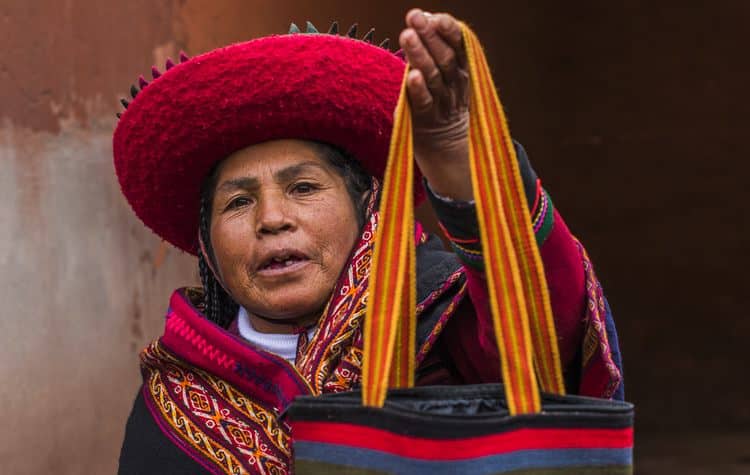
Conventional travel can have a number of negative impacts on both land and people.
In terms of the environment, tourism can lead to pollution, waste problems, and water overuse. In regard to people, tourism can deplete local natural resources, displace local people, and over-consume resources where resources are scarce. Exploitation, racism, and dissolution of traditional familial and societal structures are also potential problems of traditional tourism.
Cultural travel, on the other hand, can carry many benefits. These benefits extend to both the traveler as well as the environment and people of a destination.
Economic and Social Impact
By definition, cultural travel fosters a positive economic and social impact. It gives the traveler the opportunity to support local communities and small businesses.
Participation in cultural activities and events also helps preserve local customs and traditions. This can reinforce cultural identity, which is especially important in multicultural or diasporic communities.
Empathy
Exposure to cultures very different from your own also provide the opportunity for reflection and introspection on one’s own conscious and unconscious biases. The more that travelers have these experiences and bring them back home with them, the more empathetic and understanding a world we create.
Learning
Cultural immersion travel is also a learning experience. Immersing yourself among different cultures, eating their foods, learning a bit of their language and customs, experiencing their politics and environmental issues first hand… this deep experience of a place is how you truly learn. These are experiences that stay with you for the rest of your life and impact who you are at a core level.
How to Choose a Good Cultural Tour Company
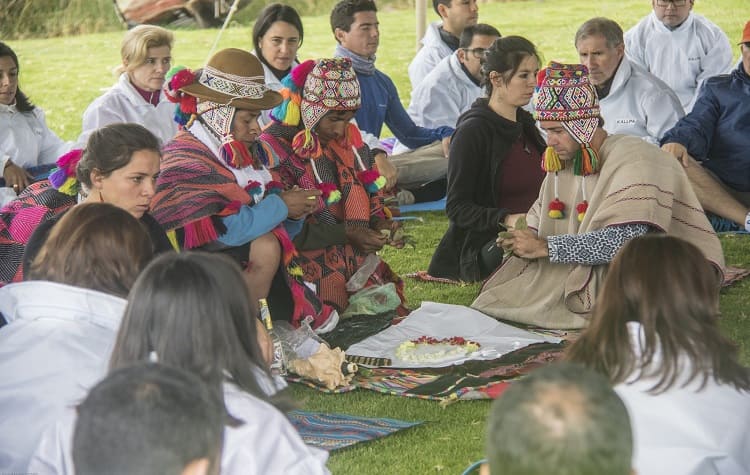
Navigating the waters of ethical cultural tourism can be choppy. It can be difficult to tell what companies are truly giving back and which are masquerading as something that they’re not. But by doing your research and choosing a genuinely responsible tour company, everything from your carbon footprint to your impact on the local community will be accounted for and built into your travel.
So, what makes a genuinely responsible tour company?
Typically, these are companies who ensure your money is going back to the community, for both environmental and cultural conservation. They’ll hire local guides and put more focus on learning and immersion than luxury and comfort. They should also have policies that explicitly state that all the humans and animals they work with are treated fairly and with respect.
Tips for Connecting with Local Culture
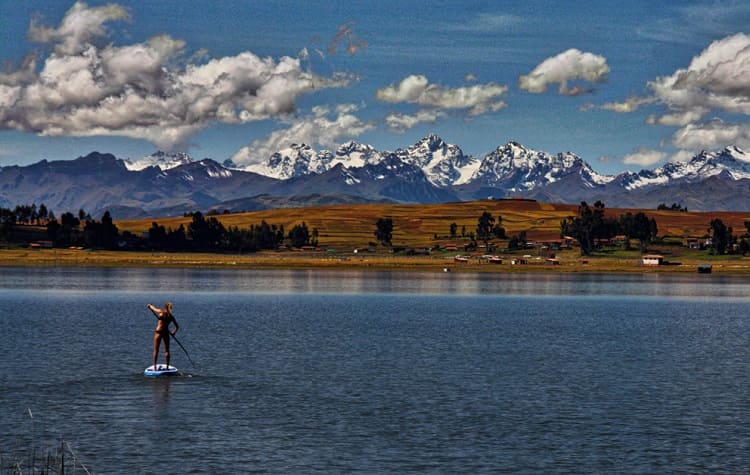
Before you take off on your cultural immersion travel experience in South America, here are a few tips on how to best connect with local culture while you’re there.
Do Some Research
It could be very helpful to do some research on where you’re going before you get there. Particularly, you’ll want to read up on the history and cultural norms. Knowing the history of the people will help you engage with them more authentically, and knowing customs and cultural norms can help you avoid any offensive or impolite behavior.
Check out how people greet each other, norms around tipping, and other everyday tips to ensure you’re being respectful and culturally sensitive. You might also consider learning some words in the local language to show your enthusiasm and to make your travels run smoother.
Engage with Cultural Sites and Activities
You can learn about local customs and culture offline and on the ground, too. The best ways to do this are to visit museums and galleries, find cultural and heritage sites, and engage in local festivities when possible.
Local museums can tell you a lot about the art, history, culture, and natural wonders of a place and its people. While museums may not have English-only tours, they typically have audio guides that allow you to interact with the subject matter.
UNESCO Cultural Heritage Sites are located all over the world and they’re a great starting place for learning about the history and cultural of a place. But UNESCO doesn’t designate all cultural sites around the world – of which there are too many to possibly know. Cultural sites are also smaller sites that can’t be found on maps or online guides.
Festivals are a wonderful way to have a culturally immersive experience. These festivals may cover food, dance, music, art, or even activism. When they’re happening around you, these are a great place to connect with locals and their culture.
How to Give
When we visit developing countries or impoverished places, it can be tempting to want to help. Often, tourists believe that giving money is a good way to help, but that’s not always the case. In some places, giving money to children encourages unsustainable practices such as begging or truancy from school. It can also have a psychological effect regarding race and power.
Volunteering, though often done with the best of intentions, can also have its pitfalls. Unethical volunteer programs can divert resources from real problems, deprive local economies of paying work, and have development effects on children. If you choose to give back through volunteering your time, be sure to do your research and find a conscious volunteer agency.
Among the best ways to give back is to become an advocate. Use your cultural immersion travel experience as a learning and growing opportunity, to check your own biases and develop more empathy for the world at large. Taking these teachings back to your home, you can become an advocate for a better world.
Culturally Conscious Travel with Kuoda
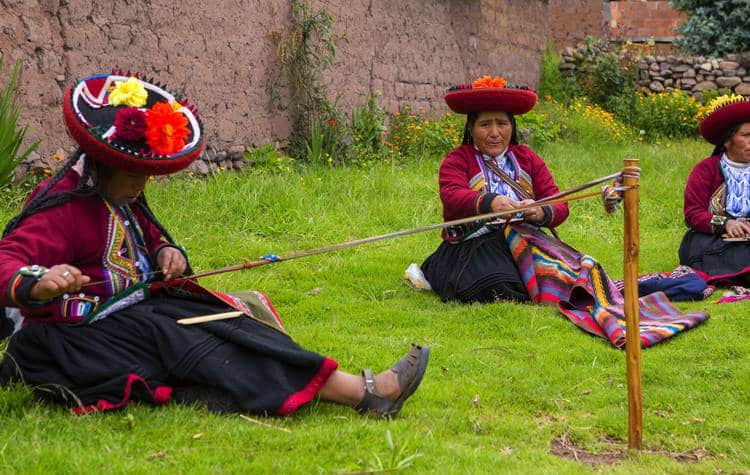
Travelers who want an authentic travel experience (and not just vacation) are increasingly looking toward cultural travel for their time spent abroad. Immersing yourself in the cultural heritage of a place and its people can be a truly life changing experience, allowing you to develop more empathy and understanding.
If you’re looking for something more profound than the perfect Instagram shot on your next getaway, look no further than Kuoda. Plan your next ethical and sustainable cultural travel experience with us.
How To Experience Peruvian Artwork and Craftsmanship on Your Next Tour To Peru
Peru’s rich heritage is brought to life through its vibrant handicrafts. From colorful textiles to intricate...
Read PostKuoda’s Guide to the 2024 Inti Raymi Festival
The 2024 Inti Raymi festival will stand as a tribute to the grandeur of the Inca Empire, steeped in centuries ...
Read PostFascinating Facts You Should Know About the Incas
Curious to know some facts about the Incas? Explore Inca Heritage with Kuoda Travel. Well, for starters, depen...
Read Post

 Call
Call 








